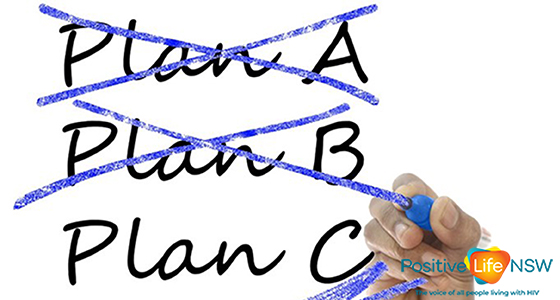
As people living with HIV dealing with coronavirus we’ve had to change some of the ways we do things and potentially, we have had an advantage living in this time of COVID-19.
People living with HIV already live with a virus day to day, and we’ve learnt how to do just that; live with HIV. Adapting to the ‘new normal’ of coronavirus might be a stretch in theory, but I think we could possibly use our skills of living with HIV to living with COVID-19.
Some of these skills are around keeping ourselves safe and healthy while also getting out and about to our doctors or other healthcare providers during the COVID-19 pandemic. Here’s a couple of tips you might be able to use to get what you need and stay safe.
Ask yourself some questions like:
- Do I need to wear a mask?
- How big is the waiting room?
- Do I feel comfortable in that space with physical distancing?
- Do I have my own pen so I don’t have to use someone else’s?
- Do I have my own hand sanitiser to use or do I feel comfortable using the ones provided?
With telehealth, people living with HIV are eligible to have our HIV consultations with our s100 prescribers over the phone or via video chat, as long as you don’t need a physical examination. We are also eligible to have our medications posted free of charge or delivered to home. Alternately, your local chemist might have a drive-through or curbside pickup options. You might be able to avoid going into your chemist as often, if you check in with your doctor and pharmacist about your options to get a prescription for a longer period of time.
Other ways some of us are adapting to this ‘new normal’ are by creating checklists. These are our own personal everyday reminders, to make sure we’re prepared before walking out the door and you have a mask in case you need it. In this time of COVID, it’s no longer easy to just ‘show up’ anymore whether to a café, the doctors or a restaurant. We’re all being encouraged to book ahead for any appointments and we’re all signing in to venues. Women don’t own the monopoly on handbags. Having a backpack, a man-bag/man-purse can make life a little bit easier.
There is no ‘one system fits all’ approach to living alongside Coronavirus. We’re all adapting in our own way, to this new normal. While restrictions have impacted us, I’ve noticed some positives that go along with this unusual experience. For instance, more of us have time to enjoy being at home, to cook new dishes, to tend to the garden and catch up on those books we’ve been meaning to read. More of us are getting to know our neighbours (physically distanced, of course) and taking time to check out the backyard to the local neighborhood. One of the main things I’ve noticed is less pollution in the air and clearer skies. We’ve also seen businesses adapt more to online technology. Positive Life has been running social events using Zoom meetings and webinars for over six months, which has meant we’ve been able to engage more with people living with HIV in rural and regional areas.
The main thing to keep in mind is that you’re not alone. Many of us living with HIV are familiar with living with a virus, keeping tabs on our health, and adapting to life while still staying connected socially.
If you have any questions about COVID and want some support to brainstorm your options around how you might be able to adapt to the new normal, give Positive Life a call on (02) 8357 8386, 1800 245 677 (freecall), or email contact@positivelife.org.au
We’re all in the same boat and we can usually find a way forward together that suits your priorities. Check out our COVID-19 toolkit newsletter or subscribe to get our notices and updates for people living with HIV in NSW.







